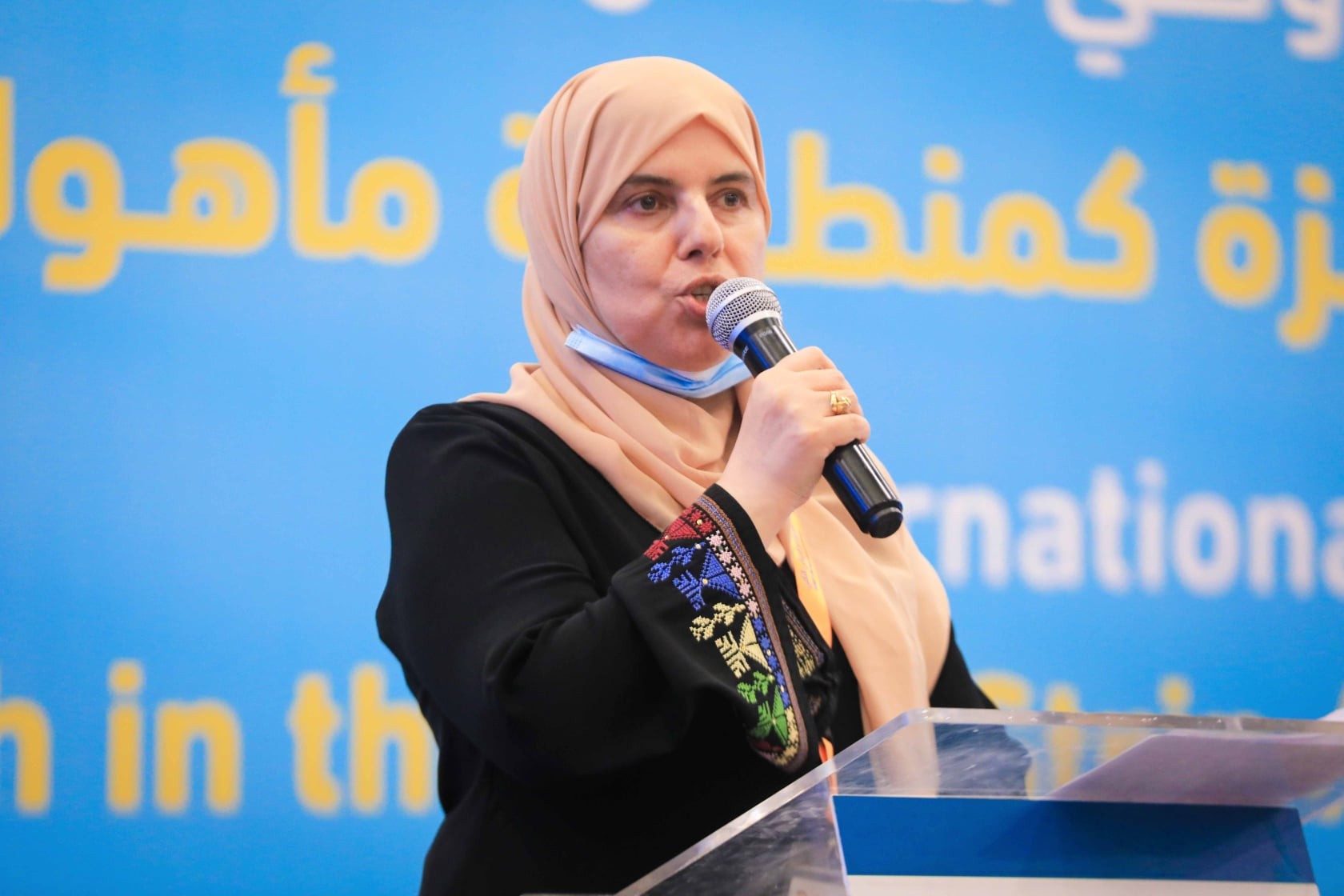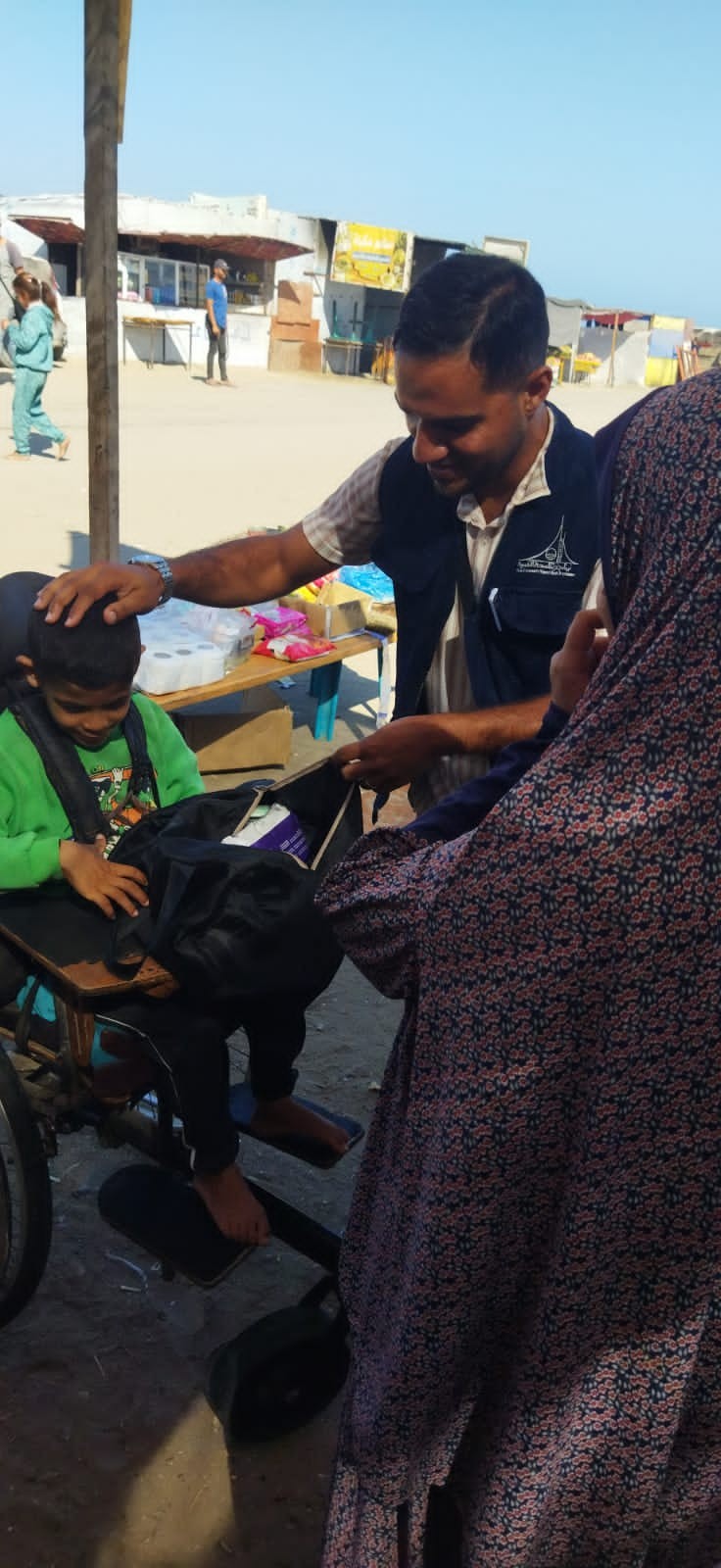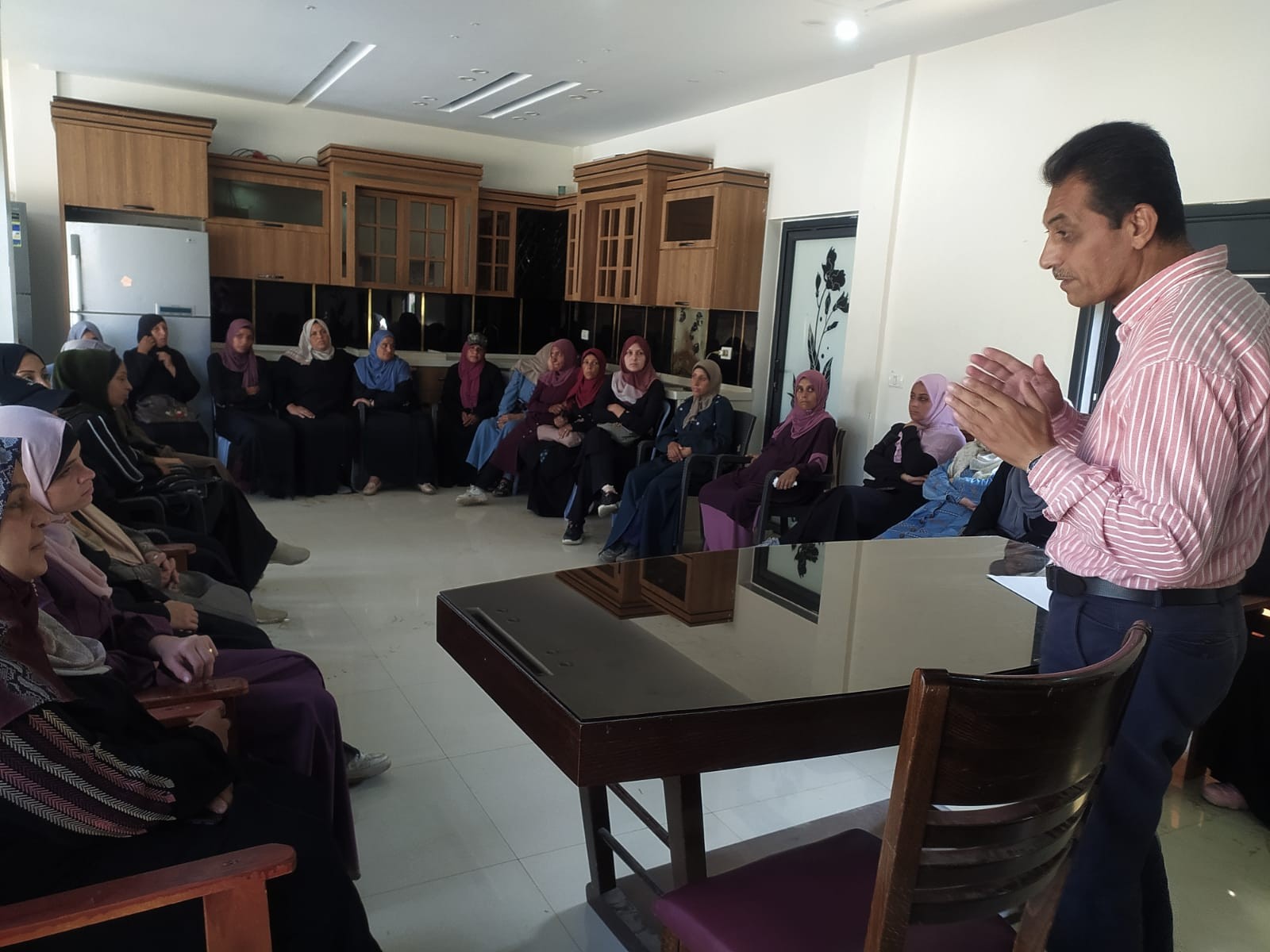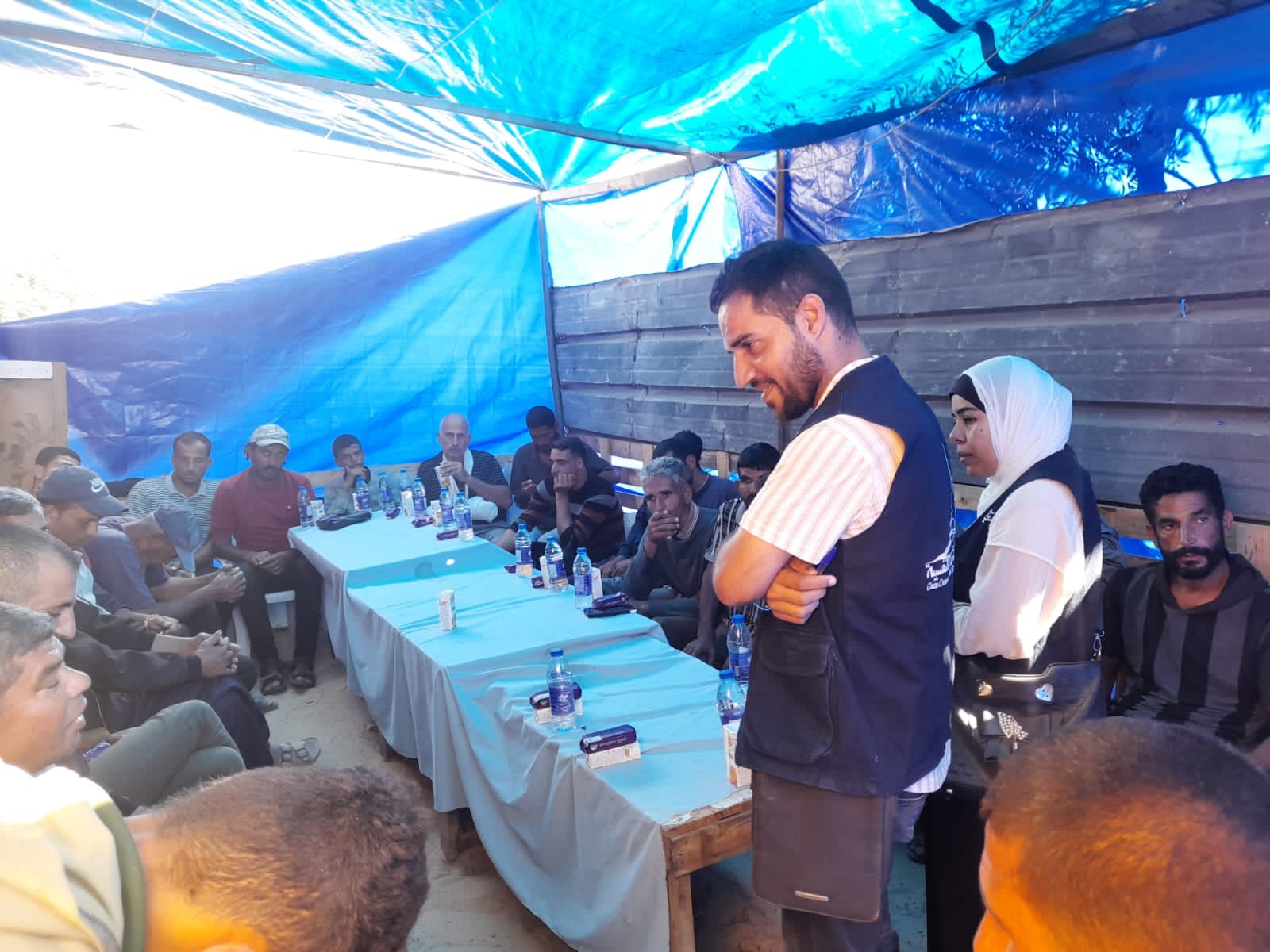
“Closing Statement – GCMHP 8th International Mental Health Conference: “Mental Health in the Gaza Strip: An Area Populated by Refugees””
Gaza Community Mental Health Program has had the honour of organizing its eighth international conference, entitled “Mental Health in the Gaza Strip: An Area Populated by Refugees”, in Gaza City via the online (Zoom Program), where 50 local and international research papers in the field of mental health and human rights were presented, in addition to a number of presentations on professional experiences. Participated in the conference professionals, experts and academics from several countries, namely Lebanon, Ireland, the United States, Britain, and Italy, in addition to local Palestinian papers from the West Bank and Gaza Strip.
The conference, whose activities began on Sunday, September 5, 2021, dealt with three main themes: the first, social and economic conditions in the Gaza Strip as an area populous with refugees, the second mental health of the population of the Gaza Strip, and the third mental health services for the population of the Gaza Strip and the gaps that should be bridged.
The participants expressed their satisfaction that the conference created a good opportunity for exchanging local and international experiences and also opened room for scientific discussions on a variety of topics under the themes of the conference, saying that it has contributed to promoting the professional practice of those who work in the field of mental health and human rights. In addition, they found the conference as a means of breaking the state of professional and political siege that the Gaza Strip suffers from, and also a vehicle for creating dialogue with the professional communities around the world and enhancing cooperation with them.
During the conference, the participants have cast light on the fact that it is not possible to enjoy psychological and physical well-being while living under the occupation and suffering from siege, violation of human rights, lack of life essentials and loss of sense of dignity.
Moreover, the participants expressed their great gratitude for Gaza Community Mental Health Program as a leading organization in the field of mental health and human rights in Palestine and as an important part of the Palestinian civil society, reiterating the point that this conference comes at a very important and sensitive time in which the Palestinians, especially the refugees in the Gaza Strip, experience all forms of oppression, injustice, marginalization, and deprivation of their rights – the rights whose observation has been repeatedly called for by the International community.
This great event has been a reminiscent of the pioneering role played by the Late Dr. Eyad El-Sarraj, who, though absent with his body, is still with us in spirit. Dr El-Sarraj has had the credit for establishing and sponsoring the this GCMHP, as well as developing the mental health profession in Gaza and Palestine and linking it to the principles of human rights, justice and dignity.
GCMHP today, and this conference, confirm the continuation of this concept which Dr. El-Sarraj initiated to serve humanity and the Palestinian home through the provision of mental health, community services, capacity building, knowledge management, scientific research, and the liberation of the human being from injustice and ignorance.
After discussing about 50 research paper and presentations, the participants have come to the following conclusions and recommendations:
First: Coronavirus has created many challenges in the form of a complex reality in the Gaza Strip, which, as a result, has created negative effects on the economic, social and psychological lives of all the categories of the Palestinian society in the Gaza Strip as an area populous with refugees.
To reduce these effects it is recommended that social media platforms and digital media tools are more broadly used to bridge the gap caused by the pandemic and also to increase the awareness and create more educational programmes about the impact of the pandemic on people and those with mental health disorders. Besides these platforms and tools can be used in developing educational curricula and be aligned with the new situation we are living.
• Second, Women in the Gaza Strip, in addition to vulnerable groups such as the elderly, children and people with disabilities, have faced great psychological pressures at emergency times and in crisis situations in recent years, which has necessitated developing their capabilities through special programs and interventions to help them cope of stress. In addition they need to have their awareness raised to protect them from all forms of abuse, while also focusing on providing them with preventive, therapeutic and rehabilitative services. These services should also focus on dealing with disorders related to trauma and stress, as they pose a threat to all the groups of the Palestinian society, especially the vulnerable.
• Third: highlighting the importance of the mental health sector, especially its role in crisis situations, including those resulted from Coronavirus pandemic. Mental health organizations have contributed to increasing local and global awareness and have equipped people with coping skills in dealing with emergency situations, pandemics, natural disasters and armed conflicts.
Fourth: There is a need for continuing applying science-based interventions and to conduct more studies related to nutrition and its impact on the mental health state of the population in the Gaza Strip. There is also a need for conducting an evaluation of psychological resilience programmes in the Gaza Strip, in addition to conducting more studies on the psychological and social impact of loss on Palestinian families.
• Fifth: Medical crews, along with the professionals working in the field of psychosocial services, have constituted the first frontlines in responding to the successive crises that the Gaza Strip has witnessed, such as the ongoing aggression and the recent Corona pandemic. Researchers have reach consensus through their studies on the need for pay attention to this category of workers, through providing them with supportive supervisory programmes and therapeutic interventions so as they can continue their important professional roles. In addition, researchers have recommended that those categories are provided with self-care programmes with the aim of promoting recovery and helping them cope with the working conditions.
Sixth: The participants have unanimously agreed on the importance of coordination between service providers from governmental and non-governmental institutions, considering it as the most important factor of success in implementing emergency plans. They also referred to the importance of extensively providing first aid services during times of crisis and in the aftermath, calling for the launch of national campaigns related to the protection of the population in the Gaza Strip, including the refugees.
Besides they called for developing implementable emergency response plans to confront the impact of crises, especially on the poor and vulnerable groups, with the participation of the private sector, the civil society and the international organizations so as to support and assist governmental agencies in providing sufficient financial resources to implement these plans.
Seventh: in the shadow of the persecution that the Palestinian society is experiencing, it is clear that more and more individuals and organizations worldwide understand the reality of the oppressive practices that Palestinians are subjected to, including the siege on the Gaza Strip, and also understand the intervention gaps in such a context, and therefore researchers recommend to recruit more allies, find and mobilize more voices that call for ending the occupation and helping the Palestinians gain their rights, while establishing more links between international and national organizations.
On this great scientific occasion, the participants of the conference have sent their heartfelt words of solidarity and support for all the survivors and victims of human rights violations in Palestine and elsewhere. They also express their gratitude for the mental health workers, remembering those who lost their lives, property, or loved ones while helping their communities.
Finally, allow us all to extend our sincere thanks to the German GIZ Foundation for funding this conference, and allow us to say thank you to all the participants who have shared with us their research and professional experiences at this conference –which came at exceptionally challenging circumstances – hoping it will rejuvenate our spirits and renew our sense of optimism.
Best wishes
The Organizing Committee of the 8th International MH Conference




Read Comments
Steven Rich
March 10, 2019Omnis iste natus error sit voluptatem accusantium nam libero tempore, cum soluta nobis est eligendi optiocumque nihil impedit quo minus id quod maxime.
Van Wimbilton
March 10, 2019Natus error sit voluptatem accusantium nam libero tempore, cum soluta nobis eligendi optio cumque nihil impedit quo minus id quod maxime.